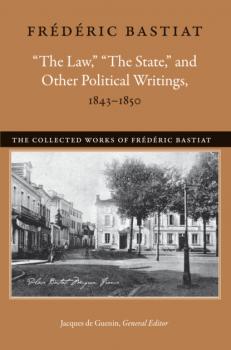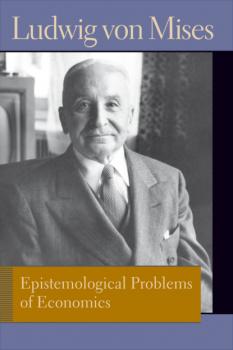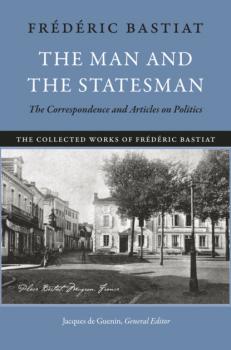Экономика
Различные книги в жанре ЭкономикаA Treatise on Political Economy
Antoine Louis Claude Destutt De Tracy
A Treatise on Political Economy by Antoine Louis Claude Destutt de Tracy (1754–1836) is a foundational text of nineteenth-century, free-market economic thought and remains one of the classics of nineteenth-century French economic liberalism. Destutt de Tracy was one of the founders of the classical liberal republican group known as the Idéologues, which included Jean-Baptiste Say, Marquis de Condorcet, and Pierre Cabanis.In this volume, Destutt de Tracy provides one of the clearest statements of the economic principles of the Idéologues. Placing the entrepreneur at the center of his view of economic activity, he argues against the luxurious consumption of the idle rich and recommends a market economy with low taxation and minimum state intervention.Destutt de Tracy sent the text of A Treatise on Political Economy to Thomas Jefferson in hopes of securing its translation in the United States. It was met with enthusiastic approval. Jefferson wrote to the publisher, “The merit of this work will, I hope, place it in the hands of every reader in our country.”Jeremy Jennings is Professor of Political Theory at Queen Mary, University of London. Please note: This title is available as an ebook for purchase on Amazon, Barnes and Noble, and iTunes.
“The Law,” “The State,” and Other Political Writings, 1843–1850
“The Law,” “The State,” and Other Political Writings, 1843–1850, collects nineteen of Bastiat’s “pamphlets,” or articles, ranging from the theory of value and rent, public choice and collective action, government intervention and regulation, the balance of trade, education, and trade unions to price controls, capital and growth, and taxation. Many of these are topics still relevant and debated today.In addition, this edition also contains footnotes and glossary entries that help explain the political, economic, and intellectual context in which Bastiat lived and worked. Filling gaps on Bastiat and his philosophy, this volume features articles that have never before been translated in English.Frédéric Bastiat (1801–1850) was one of the leading advocates of free markets and free trade in the mid-nineteenth century.Pascal Salin is Emeritus Professor of Economics, Paris University, and former president of the Mont Pelerin Society. He is the author of Libéralisme; Français, n’ayez pas peur du libéralism; and Revenir au capitalisme, pour éviter les crises.Jacques de Guenin is founder of the Cercle Frédéric Bastiat. He is a graduate of the École des Mines in Paris and holds a Master of Sciences from the University of California, Berkeley.Dennis O’Keeffe is Professor of Social Science at the University of Buckingham, Buckingham, England, and is Senior Research Fellow in Education at the Institute of Economic Affairs, London.David M. Hart has a Ph.D. in history from King’s College, CambriEAe, and is the Director of Liberty Fund’s Online Library of Liberty. Please note: This title is available as an ebook for purchase on Amazon, Barnes and Noble, and iTunes.
Epistemological Problems of Economics
First published in German in 1933 and in English in 1960, Epistemological Problems of Economics presents Ludwig von Mises’s views on the logical and epistemological features of social interpretation as well as his argument that the Austrian theory of value is the core element of a general theory of human behavior that transcends traditional limitations of economic science.This volume is unique among Mises’s works in that it contains a collection of essays in which he contested the theories of intellectuals he respected such as Carl Menger, Eugen von Böhm-Bawerk, and Max Weber. Mises describes how value theory applies to human action at all times and places as opposed to economic theory, which applies only to a human action guided by economic calculation.In a review of Epistemological Problems of Economics that was published in Teacher’s College Record in 1965, F. A. Hayek stated, “If Professor Mises’s Human Action . . . must be regarded as the definitive statement of his views, the distinctive features of his notions of the nature of social science have found their freshest expression in the present series of essays, dating from 1928 to 1933.”Ludwig von Mises (1881–1973) was the leading spokesman of the Austrian School of economics throughout most of the twentieth century.Bettina Bien Greaves is a former resident scholar and trustee of the Foundation for Economic Education and was a senior staff member at FEE from 1951 to 1999.Please note: This title is available as an ebook for purchase on Amazon, Barnes and Noble, and iTunes.
Economic Policy
Economic Policy contains six lectures Ludwig von Mises delivered in 1959 for the Centro de Estudios sobre la Libertad in Argentina. The lectures were posthumously edited by Mises’s wife, Margit, and George Koether, a student and long-time friend of Mises. This volume serves as an excellent introduction to what Mises sees as the simple truths of history in terms of economic principles. In straightforward language, Mises explains topics such as capitalism, socialism, interventionism, inflation, foreign investment, and economic policies and ideas.Ludwig von Mises (1881–1973) was the leading spokesman of the Austrian School of economics throughout most of the twentieth century.Bettina Bien Greaves is a former resident scholar and trustee of the Foundation for Economic Education and was a senior staff member at FEE from 1951 to 1999. Please note: This title is available as an ebook for purchase on Amazon, Barnes and Noble, and iTunes.
The Man and the Statesman
The Man and the Statesman, the first volume in Liberty Fund’s six-volume series, may be considered the most complete edition of Bastiat’s works published to date, in any country, and in any language. The main source for this translation is the seven-volume Œuvres complètes de Frédéric Bastiat, published in the 1850s and 1860s.The present volume, most of which has never before been translated into English, includes Bastiat’s complete correspondence: 207 letters Bastiat wrote between 1819, when he was only 18 years old, until just a few days before his untimely death in 1850 at the age of 49. For contemporary classical liberals, Bastiat’s correspondence will provide a unique window into a long-forgotten world where opposition to war and colonialism went hand-in-hand with support for free trade and deregulation.Frédéric Bastiat (1801–1850) was one of the leading advocates of free markets and free trade in the mid-nineteenth century.Jacques de Guenin is founder of the Cercle Frédéric Bastiat. He is a graduate of the École des Mines in Paris and holds a Master of Sciences from the University of California, Berkeley.Dennis O’Keeffe is Professor of Social Science at the University of Buckingham, Buckingham, England, and is Senior Research Fellow in Education at the Institute of Economic Affairs, London.David M. Hart has a Ph.D. in history from King’s College, CambriEAe, and is the Director of Liberty Fund’s Online Library of Liberty. Please note: This title is available as an ebook for purchase on Amazon, Barnes and Noble, and iTunes.
Interventionism
Interventionism provides Mises’s analysis of the problems of government interference in business from the Austrian school perspective. Written in 1940, before the United States was officially involved in World War II, this book offers a rare insight into the war economies of Hitler’s Germany and Mussolini’s Italy. Mises criticizes the pre–World War II democratic governments for favoring socialism and interventionism over capitalist methods of production. Mises contends that government’s economic role should be limited because of the negative political and social consequences of the economic policy of interventionism.Ludwig von Mises (1881–1973) was the leading spokesman of the Austrian School of economics throughout most of the twentieth century.Bettina Bien Greaves is a former resident scholar and trustee of the Foundation for Economic Education and was a senior staff member at FEE from 1951 to 1999. Please note: This title is available as an ebook for purchase on Amazon, Barnes and Noble, and iTunes.
On the Manipulation of Money and Credit
The three treatises in On the Manipulation of Money and Credit were written in German between 1923 and 1931. Together they include some of Mises’s most important contributions to monetary and trade-cycle theories and constitute a precursor to Mises’s major work, Human Action.Ludwig von Mises (1881–1973) was the leading spokesman of the Austrian School of economics throughout most of the twentieth century.Bettina Bien Greaves is a former resident scholar and trustee of the Foundation for Economic Education and was a senior staff member at FEE from 1951 to 1999.Please note: This title is available as an ebook for purchase on Amazon, Barnes and Noble, and iTunes.
Market Theory and the Price System
The second volume in Liberty Fund’s Collected Works of Israel M. Kirzner series, Market Theory and the Price System was published in 1963 as Kirzner’s first (and only) textbook. This volume presents an integrated view of Austrian price theory. The basic aim of Market Theory is to utilize the tools of economic reasoning to explain the market process. The unique framework Kirzner develops for microeconomic analysis, following Mises and Hayek, examines errors in decision-making, entrepreneurial profit, and competition as a process of discovery and learning.Israel M. Kirzner is a leading economist in the Austrian School and Professor Emeritus of Economics at New York University.Peter J. Boettke is University Professor of Economics and Philosophy at George Mason University and the BB&T Professor for the Study of Capitalism at the Mercatus Center.Frédéric Sautet is a visiting associate professor of economics at the Catholic University of America. Previously, he has taught at George Mason University, New York University, and the University of Paris Dauphine.Please note: This title is available as an ebook for purchase on Amazon, Barnes and Noble, and iTunes.
Monetary and Economic Policy Problems Before, During, and After the Great War
The present volume is devoted to some of Mises’s earliest writings. As with the second volume in the series, the articles that compose this book include Mises’s policy memoranda, essays, and speeches that were found in a formerly secret KGB archive in Moscow. The articles have two primary focuses: First, they reveal Mises’s thoughts on the monetary, fiscal, and general economic policy problems of the Austro-Hungarian Empire before and during World War I; and second, they focus on his thoughts on the new postwar Austrian Republic after the dismantling of the Habsburg monarchy.An appendix to the volume includes a curriculum vitae that Mises’s great-grandfather prepared for the Habsburg emperor in 1881 as part of his ennoblement, which gave him and his heirs the hereditary title of “Edler von.” Also included is a talk that Mises delivered at his private seminar in his office at the Vienna Chamber of Commerce in the spring of 1934 on the topic of the methodology of the social sciences.Ludwig von Mises (1881–1973) was the leading spokesman of the Austrian school of economics throughout most of the twentieth century.Richard Ebeling is Professor of Economics at Northwood University. Please note: This title is available as an ebook for purchase on Amazon, Barnes and Noble, and iTunes.









